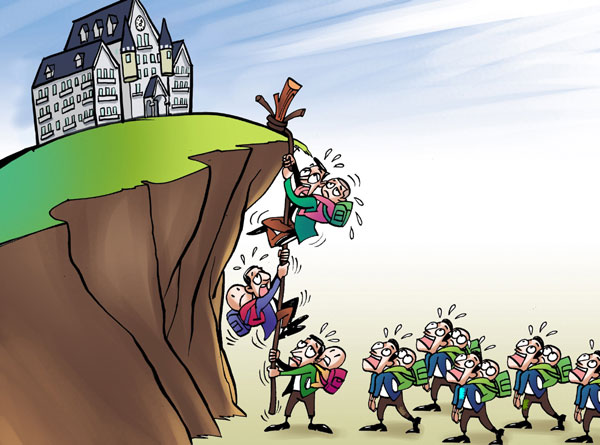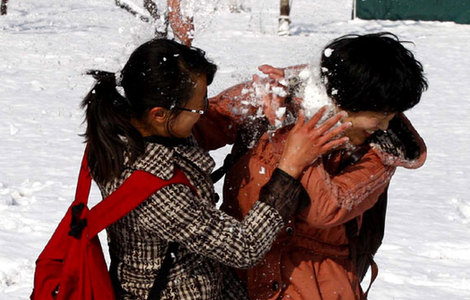 |
|
|
|
|||||||||||
Desire to send students abroad comes at a very high price, reports Zhou Wenting in Shanghai.
Arecent audit at Dickinson State University in the United States will have made uncomfortable reading for parents in China.
Over the last four years, according to the audit, the college in North Dakota had issued diplomas to 400 foreign students despite their failure to complete the required coursework.
Roughly 95 percent of these students were Chinese.
It was just one of several controls "waived or intentionally overridden or ignored" by DSU, according to the audit, which has again cast a spotlight on the risks families face in paying out huge sums to have their children educated overseas.
Such investments often create what sociologists call "the new urban poor".
"Parents are surrendering their last resources to wager them on a child's future by sending them abroad," said Lao Kaisheng, an education policy researcher at Capital Normal University. "If these children don't get the decent jobs and the salary that is expected, their parents will naturally be sucked into poverty."
Ministry of Education data show that more than 330,000 people nationwide went abroad for study in 2011, making China the largest supplier of students to Western schools.
The desire to send offspring to schools overseas has existed for decades, although today it is largely fueled by the belief that it gives youngsters an advantage in the tough domestic employment market.
However, not many Chinese families have enough saved in the bank to cover the tuition fees and accommodation and living expenses involved in overseas study potentially hundreds of thousands of yuan. Instead, many are choosing to take on massive debt at a critical time in their own life.
It is a gamble, experts say, and the stakes are high.
"People need to think over the input and potential output, as well as the risks that any investment brings," said Zhang Jianbai, who runs a private school in Yunnan province and is a self-proclaimed "explorer" of new education models.
He said that parents in small cities across his southwestern province, many of whom earn just 2,000 yuan ($320) a month, often sell their apartments to fund their children's study overseas.
"Those who are now suffering trouble (owning property is important in Chinese culture) or financial difficulties would not have been in this position had they chosen a more suitable way to educate their children," he added.
|
 |
| Liang Qiu / for China Daily |
Wu Ying, iPad, Jeremy Lin, Valentine's Day, Real Name, Whitney Houston, Syria,Iranian issue, Sanyan tourism, Giving birth in Hong Kong, Cadmium spill, housing policy

|

|

|

|

|

|